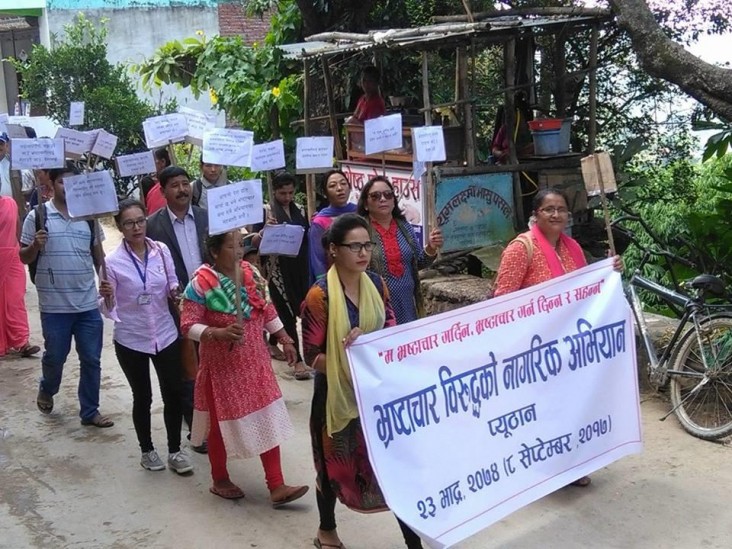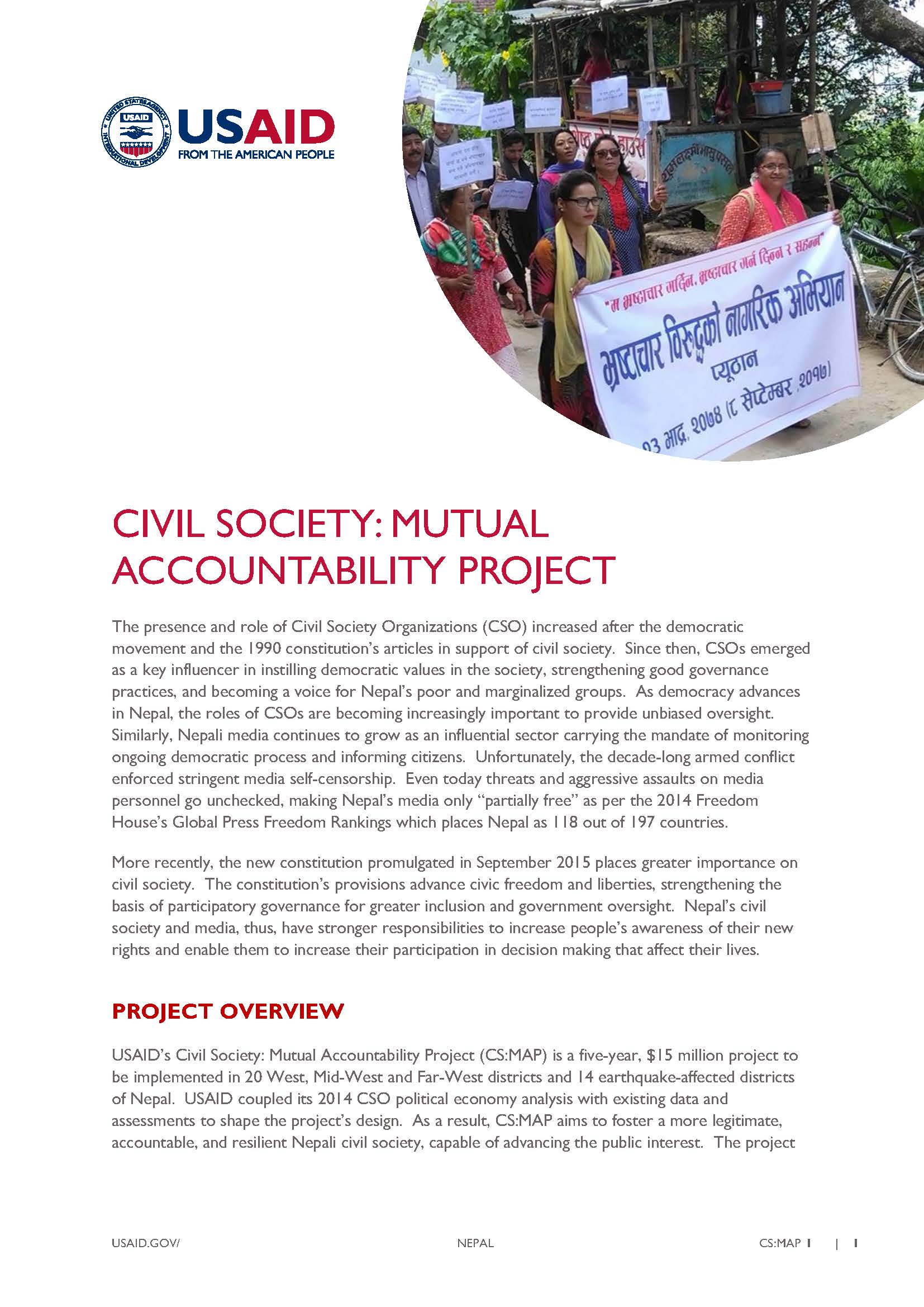Speeches Shim

The presence and role of Civil Society Organizations (CSO) increased after the democratic movement and the 1990 constitution’s articles in support of civil society. Since then, CSOs emerged as a key influencer in instilling democratic values in the society, strengthening good governance practices, and becoming a voice for Nepal’s poor and marginalized groups. As democracy advances in Nepal, the roles of CSOs are becoming increasingly important to provide unbiased oversight. Similarly, Nepali media continues to grow as an influential sector carrying the mandate of monitoring ongoing democratic process and informing citizens. Unfortunately, the decade-long armed conflict enforced stringent media self-censorship. Even today threats and aggressive assaults on media personnel go unchecked, making Nepal’s media only “partially free” as per the 2014 Freedom House’s Global Press Freedom Rankings which places Nepal as 118 out of 197 countries.
More recently, the new constitution promulgated in September 2015 places greater importance on civil society. The constitution’s provisions advance civic freedom and liberties, strengthening the basis of participatory governance for greater inclusion and government oversight. Nepal’s civil society and media, thus, have stronger responsibilities to increase people’s awareness of their new rights and enable them to increase their participation in decision making that affect their lives.
PROJECT OVERVIEW
USAID’s Civil Society: Mutual Accountability Project (CS:MAP) is a five-year, $15 million project to be implemented in 20 West, Mid-West and Far-West districts and 14 earthquake-affected districts of Nepal. USAID coupled its 2014 CSO political economy analysis with existing data and assessments to shape the project’s design. As a result, CS:MAP aims to foster a more legitimate, accountable, and resilient Nepali civil society, capable of advancing the public interest. The project will collaborate with a wide range of CSOs including non-governmental and non-profit organizations, non-governmental media outlets, member-based organizations, associations, unions, and federations.
PROJECT OBJECTIVES
- Establish a favorable environment in which Nepali civil society and media operates.
- Enhance the capacity of Nepali CSOs and media to collaboratively and constructively engage in policy advocacy.
- Enhance coordination and effective civil society and media oversight of public resource use and service delivery.
- Strengthen organizational capacity and sustainability of CSO and media working in USAID priority sectors.
KEY ACTIVITIES
- Strengthen CSO and media’s legal and policy frameworks to adhere to international standards.
- Initiate constructive engagement between CSOs and the Government of Nepal in policy work, planning, and performance across sectors.
- Strengthen capacity of CSOs and media to conduct participatory and evidence-based research and advocacy.
- Establish mechanisms and processes to improve bottom-up coordination between community, district, and national CSOs engaged in public service oversight.
- Raise the awareness of Nepalis including informing them on the use of available GON social accountability mechanisms.
- Train Nepalis on greater engagement in the use of media and Information and Communications Technology (ICT) tools in order to strengthen public participation and oversight.
- Develop institutional governance standards for CSOs and media organizations.


Comment
Make a general inquiry or suggest an improvement.